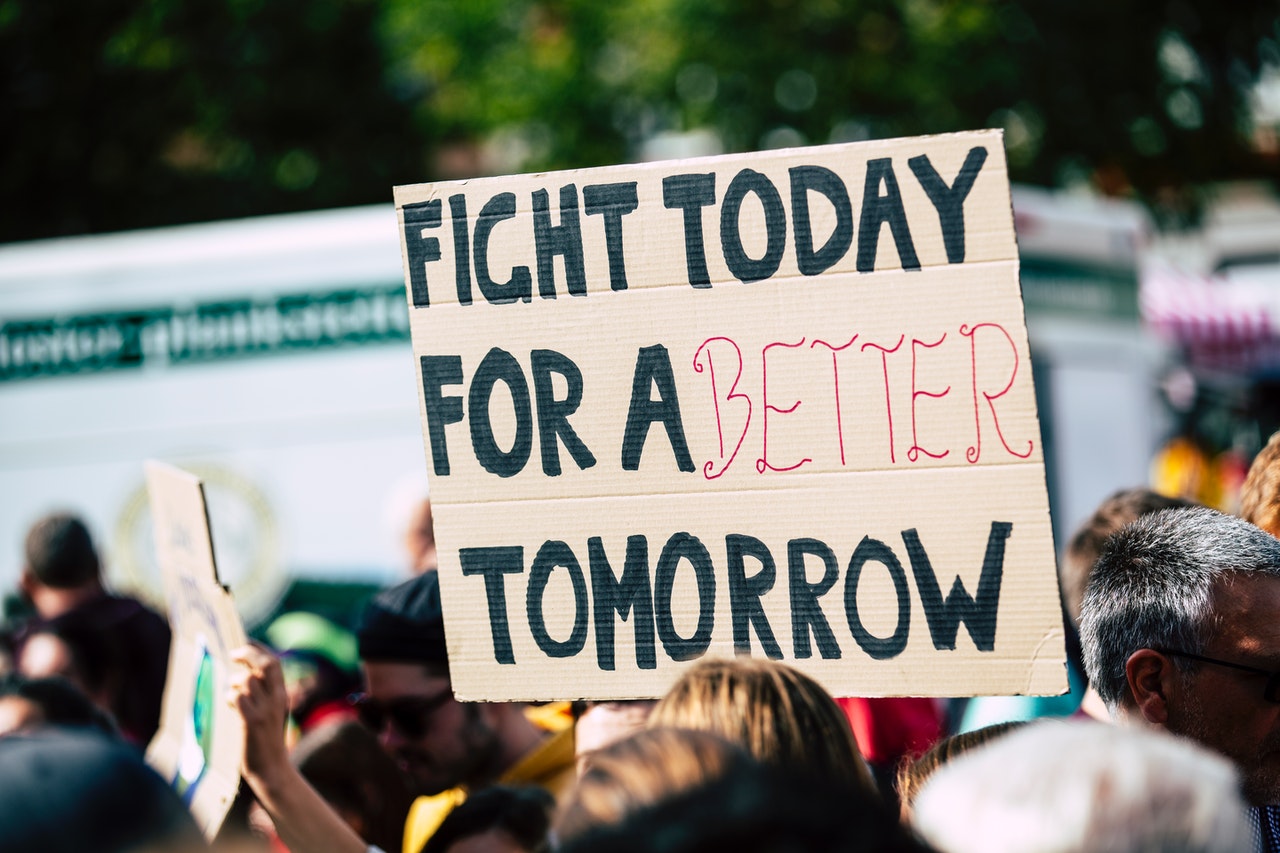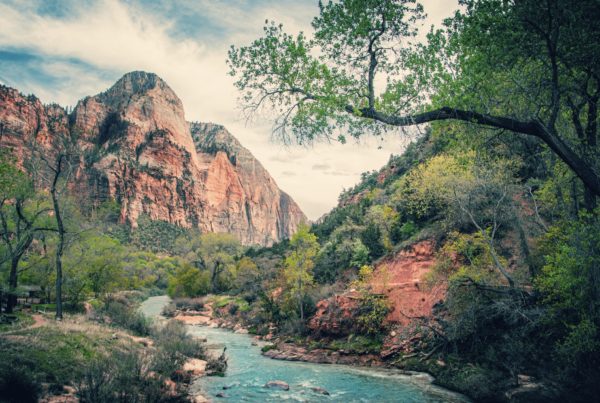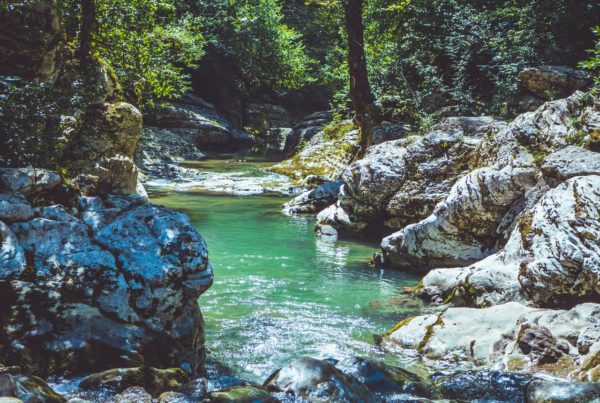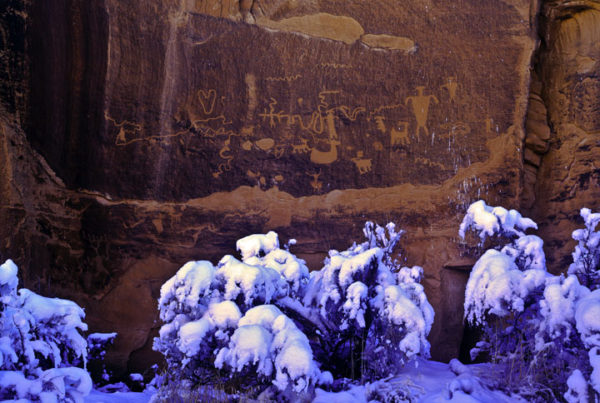I’ve been drawn, recently, to failed prophets.
I don’t mean prophets who fell from grace, or sons of the morning. I mean prophets who preached and strove and bled till the ground and rivers ran red. I mean those prophets who taught and warned knowing two things for certain: that God lived, and that their people—either now or in some future time—would forget Him. That they would “taste of the fruit…and fall away“. That they would “draw near to [God] with their mouth, but remove their heart far from [Him]”. Those prophets knew with a certainty that those they loved had, and would again “forsake the covenants of the Lord God“. By any definition given today, prophets that preached with that knowledge were the epitome of fighting for lost causes. And yet they persisted. Those same prophets continued their calling until they were tortured, hunted, burned, stoned, beheaded, crucified, murdered.
How could they still have hope?
The scriptures give us some answers. The prophet Ether, watching a people he loved dearly rush merrily towards their own destruction, preached that, “Whoso believeth in God might with surety hope for a better world, yea, even a place at the right hand of God—which hope cometh of faith, maketh an anchor to the souls of men, which would make them sure and steadfast, always abounding in good works, being led to glorify God“. Hope, then, for a brighter tomorrow anchored and drove scriptural men and women to action.
Their promise, which steadied them as the world fell apart, was that their message would, eventually, prevail. Christ would redeem His people. The endless cycle of light and dark, of faith and pride and apostasy on an institutional level would cease. There would be a time when their struggles and strivings were not doomed to failure and rejection. There would be a day when light and truth and knowledge would not only be restored, but would stay and crescendo.
That day is now! We live in the better world that the prophets hoped for. The advancements the world have made are staggering. But that does not mean that fruitless struggles are over. Racism, discrimination, bigotry, and hatred all plague us today. Particularly now the evil forces seem to be on the verge of overwhelming us. While humanity has the spark of the divine in it, it seems that too many are willing to trade that light for hate and anger and another retweet.
Given recent actions taken by the US government, it’s clear that we’re also all too willing to trade the divine gift of nature for short-term profit and hollow gains.
Conservation too must be added to that list of struggles and causes that appear to constantly fail. Just as those ancient men and women saw the doom of their people on the horizon, today we see the impending destruction that will be the result of a changing climate. Our instruments are more precise, our evidence is more scientific. And yet still we are left, as the prophets of old were, preaching to a people who will not listen.
How can we still have hope?

The anti-conservation acts of the current US presidency have particularly impacted my home state of Utah. The shrinking of Bears Ears National Monument, the decimation of Grand Staircase-Escalante National Monument, and the latest BLM-led nomination of federal lands in southern Utah for oil and gas development seem designed to desecrate land that is sacred. The slick rock country of the Colorado plateau is important to me and my family, yes, but more importantly it is holy to countless others, from the Hopi, Navajo, Ute, and Pueblo tribes to the German tourists that are readily found roaming the Southern Utah desert. Without concern or consideration, decades-long conservation efforts have been slashed. Two million and counting acres of protected land have been lost. And the onslaught against wildlands continues. In the midst of the Covid-19 crisis, the Trump administration continued it’s reversal of a hundred environmental protections, targeting among other things, air pollution caps, drilling restrictions, endangered animal protections, and toxin control.
As a pandemic ravages our world, our own country encourages efforts to destroy it.
So I ask again, how do we as conservationists still “hope for a better world?”. So much is wrong in so much of our nation right now that it feels overwhelming to even try and find a starting place. How do we hope for a better world when the one we’ve got seems to be on a downward spiral? How do we continue to strive?
For myself, I return again to Ether. “Whoso believeth in God might, with a surety, hope for a better world…which hope cometh from faith, maketh an anchor to the souls of men, which would make them sure, and steadfast, always abounding in good works…“. It is my faith in God which allows me to have hope for a world where people are treated equally, where we protect the God-given gift of nature. My hope comes as Alma’s did, that, “All things denote there is a God; yea even the earth and all things that are on the face of it, yea and its motion, yea and also all the planets that do move in their regular form“. This hope anchors me at times when I desperately need steadying. This hope pushes me to continue my efforts–small though they may be– to be engaged in doing good.

As I’ve ruminated on prophets and causes that seem doomed to failure, I’ve been reminded of the tale of Sisyphus. I first encountered him in D’Aulares Book of Greek Myths, but more so than the stories of Zeus or Aphrodite, Sisyphus’s fate has stuck with me. For those unfamiliar with the story, King Sisyphus was clever enough to evade death three times. When death finally caught up with him, he was punished by the Greek gods for his audacity. Sisyphus was to spend every day of eternity rolling a boulder up a mountain, nearly reaching the top, only to have the heavy stone roll down to the bottom again. This fruitless daily quest would, thought the gods, keep the clever King out of trouble. The repetition would grind his dreams and hopes to dust. The never-ending failure would drive him mad.
It’s not the happiest of stories. But then, these aren’t the happiest of times. Writing during the Second World War (equally, if differently, unhappy times) the French philosopher Albert Camus considered Sisyphus’s punishment in his seminal work The Myth of Sisyphus. After acknowledging the fruitlessness and indeed absurdity of both Sisyphus’s task and the tasks and causes that make up our own lives, Camus draws a startling conclusion. “I leave Sisyphus at the foot of the mountain. One always finds one’s burden again…[but] the struggle itself toward the heights is enough to fill a man’s heart. One must imagine Sisyphus happy“. Camus offers no respite to either Sisyphus or us. Indeed, as shown by recent events, often there is very little respite to be had. Our own burdens and progress are most often marked by how they fail, and how we pick them up again. However that does not mean we cannot have hope. Indeed, as Camus says, it is the hardest struggles, the struggles towards heights which we can only dream of now, that fill our hearts and shape our souls. Fighting for a good cause that seems doomed is not a source of despair, but a well of unending hope.
Put another way, we can “let heaven and earth combine against [us]” as we “fear not” and “do good“. True, the fight is long and at times relentless. There are setbacks, including small men who act as gods pushing the boulder back down the mountain again and again. But just as the prophets of old knew, there is also hope. There is hope not only for a better world in the future, but today, as the struggle for worthy things forges us and those we love.
So, as President Russell M. Nelson advised, I’m taking my vitamins. I’m listening, and trying to learn. And in the face of the destruction of the landscape of so much of southern Utah land, I am committed to hoping and to acting with that hope. I’m not always great at it, and my actions sometimes seem too small to matter. Some days and weeks the boulder seems to roll steadily downwards. But step by step and line by line I am trying to push upwards towards the heights. If my small actions fail– well. I am, I’m assured, in excellent company.

Postscript
I hesitated to write an essay fully focusing on conservation because I did not want to detract from the all-encompassing importance of fighting against systemic and individual racism in the US. And indeed, this is not a call to replace activism and efforts on behalf of Black Americans. Please, do not read this and turn your focus away from the horrific murders of Breanna Taylor, George Floyd, and Rayshard Brooks, to name just a few. I firmly believe that the fight for racial equality in the US is one that as children of God we must all be actively engaged in, in whatever way we are able, whether it is examining our own internal biases, supporting black activists and voices, petitioning our federal and local governments, donating, or physically (but safely!) protesting.
I’ve also, however, been made unpleasantly aware of the hydra-like nature of actions against conservation. It reminds me a little of the battles Moroni fought where, after increasing defense on every border city he could think of, the Lamanites simply marched to the center of the land and took over. So too are our efforts today– it seems that every time we turn around another attack has arisen.
If you’re interested in getting involved with efforts to fight racial injustice and police brutality, especially in Utah, some great resources are here: https://www.raciallyjustutah.org/our-allies.html. If you’re interested in helping with efforts to fight Covid-19’s effects on reservations or tribal land, some good resources are here: https://utahdinebikeyah.org/covid-19-resources/. If you’re interested in getting involved with efforts to fight drilling on Utah wild lands, or conservation in Utah in general, I highly recommend checking out the initiative of SUWA: https://suwa.org/.
Most importantly, stay healthy and stay safe. The struggles towards great heights tend to be marathons, not sprints.



